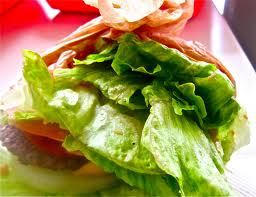Four Things To Consider Before You Start A Diet
Becoming overweight was unplanned and happened without effort. Reversing this should be just as natural.
The concept behind dieting to lose weight is a sound one. Eat fewer calories than you use and you will lose weight. In principal this should work. In reality, while a diet instructs you to consume fewer calories, it keeps you focused on what is wrong. It doesn't intrinsically change your mindset and it doesn't help you exercise more.
The food you eat is important but equally important are your thinking habits because these drive your behavioural activities. Dieting to lose weight is not a natural activity and as you have probably discovered for yourself, the effects you see are often only short-term. So before you dive in to the latest fad diet, take a moment to consider these four points.
1) How diet foods fool the body into working against you : A Brief Overview
The body and its digestive and life processes have not yet adapted to processed foods. The body is designed to help you survive. Processed foods (including those marketed as "Light" or "Diet") with their artificial sugar, fool the body into thinking you have eaten a huge meal and the body responds by trying to digest a huge meal.
The body wants to store as much of your "large" meal as it can. In nature, the sugar you get from a processed snack is equivalent to quite a lot of heavy eating of natural foods. The body can't tell the difference between real sugar and artificial sugar and when it senses sugar, it releases a quantity of insulin to act on it. It cannot recognise that a processed snack bar is just a small thing and does not need as much insulin as a large meal.
The insulin works on the sugar and transfers it into your muscles via the insulin receptors in the muscles. The insulin also shuts down the ability of the body to burn fat for a while because it wants to store this extra energy as FAT. Remember your body wants you to survive and if it thinks you've eaten a large meal, it wants to store the energy for you.
However, because what you have eaten is processed food, perhaps just a chocolate bar, there is no real energy to store. Your stomach is still empty and the insulin is swishing about lowering your blood sugar levels by working on every scrap of food it can find. It's already stopped you from burning fat because it thought you had ingested a lot of food so now your empty stomach and low blood sugar cause you to have that familiar after-snack crash. Do this often enough and you can suffer mood swings, headaches and even depression.
The body is now effectively in starvation mode and wants to conserve energy. Muscles use up a lot of energy so the body taps into the protein in your muscles for energy. For anyone trying to reduce weight, losing muscle mass is a tragic waste because muscles burn calories.
However it gets worse, muscles do not like to be force-fed sugar by insulin in sudden and large doses. Over time what happens is that the insulin receptors in the muscles become slower to respond to the insulin and this causes more insulin to be released in the body in an attempt to "push" the muscles into accepting it. In turn, the insulin receptors become even slower leading to even more insulin being produced. Constant lifestyle abuse like this can lead to Type II Diabetes.
If you do nothing else, snacking throughout the day and cutting down on your intake of processed foods and artificial sugars are probably two of the kindest things you can do for your body.
2) Food becomes all you think about
Going on a diet makes you think constantly about what you can't have. And when you think about what you can't have, it becomes the main focus of your life and affects you in other areas too.
Portion control is often a big concern for people who are overweight. Guilt at throwing food away, the need to finish your plate, not knowing when your next meal will be so you must eat it all now.
Going on a diet does not address these concerns because even if you logically know there is food in the fridge for your next meal, emotionally, you may still be uncertain that there is enough and maybe you will go hungry. You may go through your day in a constant state of agitation.
3) Psychology & Lifestyle
Food is an essential requirement for life but through dieting, you train yourself to think of your enjoyment of food as a guilty secret. Something you should not be having in your life. When you do this, you blinker yourself to the choices you have.
You think in terms of "Good" and "Bad". You identify with being fat forever and sometimes, the vision of your ideal self is beyond your imagination. If you can't see or believe in yourself achieving your ideal weight, it becomes that much harder to reach.
You may find that you slave away for ages losing that weight and as soon as you stop watching every calorie, it all piles back on. This is because the underlying factors are still there and they push you towards familiar behaviours that you are used to.
4) Free your mind and the body will follow
Obesity and related conditions make headlines every year. With every headline, there is guilt and blame being dished up and served in huge helpings.
Most people recognise the psychological factors behind eating disorders such as anorexia and bulimia, but there is less acceptance of those behind weight gain and obesity.
Most people who diet in order to reduce weight have a suspicion that there are psychological factors and emotional issues driving their behaviour but often they are unaware that they can do something about these issues.
Therapies such as hypnotherapy, NLP and EFT can help you take on the mindset of a naturally healthy person by addressing the root issues affecting you.
Once these have been resolved, you effectively have a clean slate and your current eating behaviours and lifestyle choices change from within - your thoughts about yourself become kinder and as this happens, your lifestyle and eating habits gently change - often this happens automatically without you having to count calories, eat special diet food or weigh yourself everyday.
Being overweight is often just a symptom of something psychological blocking you inside. Dieting does have a place in helping you kick-start a healthier regime, but diets on their own are judgemental and you need something more fundamentally supportive of you if you want to feel at peace with your body.
© Reeta Luthra 2008
-
3 Myths That Keep You Overeating
3 Myths That Keep You Overeating. Everybody knows you just have to
-
***No More Bland, Flavorless Meals for HCG Dieters
Wentzville, MO – The HCG Diet is known for producing rapid we
-
My Personal Weight Loss Plan - Observation
My Weight Loss Plan. When you begin your personal weight loss plan w
-
Are The Quick Weight Loss Programs Really Beneficial?
As the number of people who are becoming overweight- are increasing as
-
Extreme Fast Weight Loss - Pointers To Follow
Extreme fast weight loss is achieved not only by dieting, but also by
-
Fat Burning Exercise Equipment Secrets
There are lots of information spreading
- DON'T MISS
- Walk a little faster, eat a little slower, and lose weight quickly
- Fire Up Your Metabolism to Lose Weight Faster with These 18 Snacks
- Diet plan program – you should overcome these widespread errors when you shed weight
- Approach the Atkins Diet with Caution
- The Truth About Dieting And Fat Loss Permanently
- Reduce Waist Size - 3 Unbeatable Guides Towards Weight Loss & Reduced Waist Size
- Weight Loss Advice What Makes A GREAT Personal Trainer
- What Type Of Herbal Life Weight Loss Products Are There?
- Looking For Easy Weight Loss System?
- The Biggest Loser Diet is Simple and Results in Weight Loss




